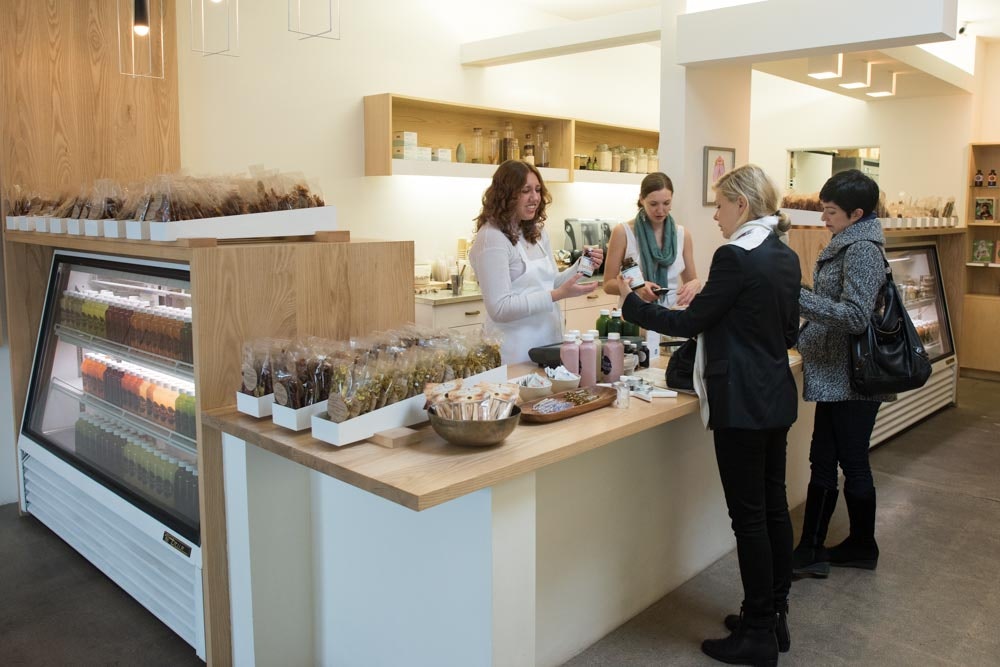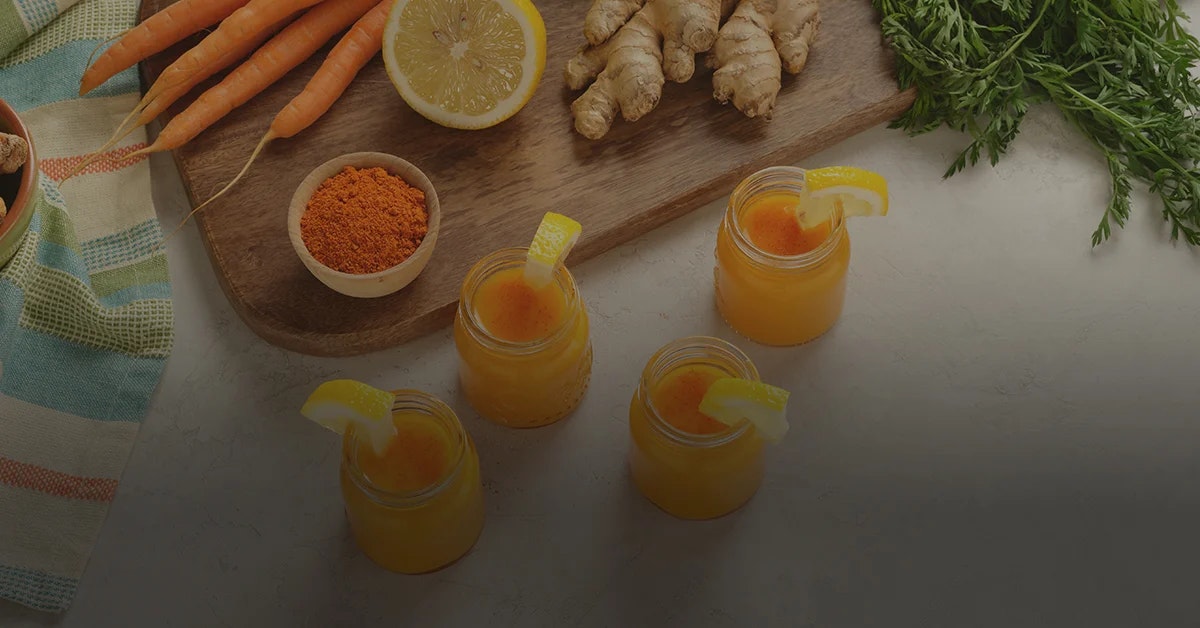My dad invented the commercial cold press juicer in 1976 when he founded Goodnature. In 2014 I launched our juice bar consulting program. After working with hundreds of juice bars over the past ten years, I've seen the same mistakes happen over and over again. If you follow the below tips, you will be well on your way to running a profitable, exciting new juice bar business.
Top 6 Tips for Starting a Juice Bar
Here are the most important things to keep in mind to ensure a successful juice bar launch.
1. Offer a variety of food and beverage products
The most successful juice bars offer all or many of the following:
- Bottled cold-pressed juice made with a Goodnature commercial juicer.
- Wellness shots. Shots are basically 4-ounce servings of more potent and healthy cold pressed juices. Looking for recipes? Check out our juice, smoothie, and shot recipes here.
- Smoothies made with high quality ingredients (avoid the smoothie mixes, use real fruit).
- Acai bowls or smoothie bowls. The nice thing about bowls is that they often share many of the same ingredients as smoothies, you can cross-utilize much of your inventory. People also feel more comfortable spending more for food items than drink items, so this allows you to have higher priced items on the menu.
- Grab and go food items. Sandwiches, wraps, energy balls, etc. All of these items can be made without needing to heat or cook anything.
- Toasts. High quality toast items are trending in a lot of juice bars. Think avocado toasts, almond butter toasts, and more. Toasts allow getting really creative, and can be made with a countertop toaster (not needing a stove or oven).
- Coffee or superfood lattes. Hot drinks will bring in the morning crowd looking for a pick-me-up. Although not every juice bar offers coffee, it can really help get more people in the door that will end up buying other items as well. Investing in an espresso machine can be a great revenue driver.
Pro Tip: The "steam wand" of an espresso machine can also be used to heat up super food lattes, like warm almond milk drinks.
2. Use a Goodnature commercial juicer
Did you know that only an actual juice press is a cold-press juicer? It can be confusing when shopping for a juicer because lots of brands market their juicers as "cold press juicers" when actually they are masticating juicers. A masticating juicer is a slow turning screw that forces the fruit through a metal screen.
A real juice press grinds the fruit to open the plant cells, then slowly presses the juice out using thousands of pounds of force. The brand of choice of thousands of successful juice bars all over the world is Goodnature. Read more about the Goodnature difference here.
A Goodnature juicer offers the following advantages over masticating juicers:
- Bulk capacity. Goodnature juicers produce anywhere from 20-100 bottles of juice per hour, depending on the model and recipes.
- Higher yield. Extract up to 30% more juice out of your fruits and veggies.
- Longer shelf life. Juice made with Goodnature can last up to 7 days in a refrigerator if kept at proper temperature.
- NSF certified. Foodservice businesses in the US are required to use equipment with NSF certification, meaning it's been certified to be safe and easy to clean.
- Commercial grade. Goodnature equipment is built to withstand the demanding use of a busy juice bar.
- Made in the USA. Goodnature equipment is manufactured in Buffalo, NY since 1976 and is a 100% family owned business.
3. Find the right type of retail space
Finding a good location is something that shouldn't be rushed. Ideally, you should try to find a retail location that was a pre-existing juice bar, cafe, or restaurant. These types of spaces will already have the type of buildout you need to get approved by the health department for foodservice.
If you sign a lease on a space that hadn't previously served food, the buildout costs can quickly add up. For example, many health districts require a "grease trap" built into the floor. This alone can cost more than $10,000 to install.
4. Design a menu that caters to your local market.
One of the mistakes many juice bar owners make is to copy their favorite juice bars in other areas without considering their local demographic. For example, if you're the first juice bar in your area, you should lean more towards the sweeter and more approachable juice recipes. If you're in an area with an established juice market, you can lean more towards the greener / less sweet recipes.
5. Offer a short and simple menu
When launching a juice bar, one of the most common mistakes is starting out with too many products. Start small, and increase your offerings as you learn about what customers want. If you're unsure where to start, keep each category at no more than 10 items (and less is fine). So, you may want to start with 7 juices, 3 wellness shots, 8 smoothies or smoothie bowls, etc.
Find out what people like, remove the worst sellers, and add on some new ones to try out. As your business grows and you become more confident, you can start adding more recipes or even new product categories.
Pro tip: Do you need help creating a captivating, original menu? Chef Ari Sexner is the world's most renowned expert and juice bar consultant. You can schedule a free consultation with him today!

6. Know your numbers!
You absolutely need to know how much your products cost to make, and formulate your pricing based on your costs. All too often we see juice bar owners asking other juice bar owners "how much should I charge for celery juice?" Or, "how much should I charge for a smoothie bowl?" The answer is it completely depends on how much it costs you to make it.
Pro tip: A good general rule of thumb is to shoot for 20%-25% food cost, meaning the cost of ingredients should only make up 20%-25% of the final price. For example, if an item costs $2.50 to make, you should sell it for at least $10.
Bonus: Commercial juicing resources
Here are some free resources to help you on your journey
- Commercial juicing blog - the only commercial juicing blog
- Chef-created juice, smoothie, shots, and bowl recipes
- The Juicing Companion - the only book that teaches you how to make your own amazing recipes.
- Goodnature Radio Podcast - the only commercial juicing podcast! Featuring Chef Ari and myself.



Comment